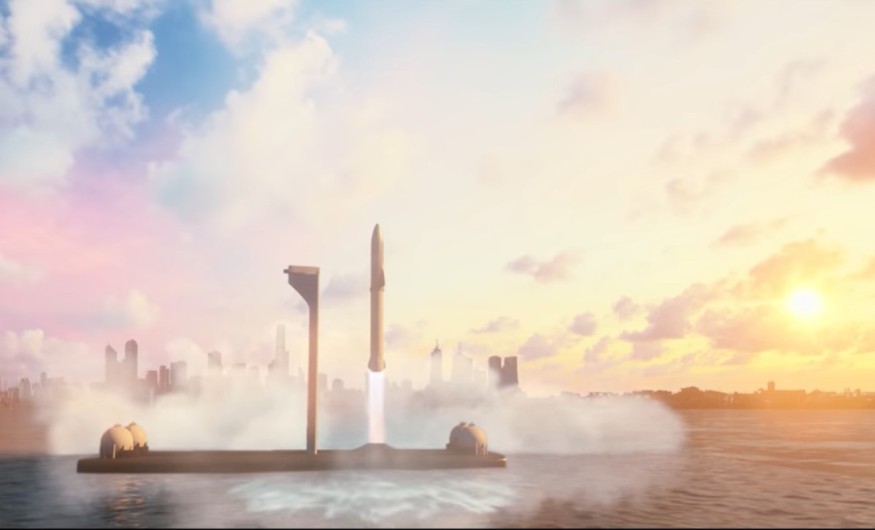Elon Musk's SpaceX has rolled out its latest Starship spacecraft, dubbed Serial Number 11 (SN11), to its launch pad a few days after its predecessor crashed.
Images on SN11, the newest Starship concept, show it's lifted onto the launch pad by a large crane at the company's Boca Chica, Texas facility.
This morning Starship SN11 is preparing to roll to the launch site. 🚀@NASASpaceflight pic.twitter.com/yNlka77Ryp
— Mary (@BocaChicaGal) March 8, 2021
The SN11 may be ready in the coming days, according to NASASpaceFlight.com. Based on the turnaround times for previous prototypes such as the Starships SN8, SN9, and SN10, a launch by the end of March is a more realistic goal.

Elon Musk Acknowledges Mistake: SN11 Isn't Making the Same Errors as SN10
Elon Musk said that they would make up for SN10's errors and explosion during the Stainless Steel spacecraft's test flight in Boca Chica. Unlike its predecessor SN10, SN11 can land safely without bursting into a fireball. SN10 flew six miles into the clouds on its first high-altitude test flight, passing the altitude level in the process. SN10 sailed, flipped, and landed without crashing and burning unlike the previous iterations SN8 and SN9.
Zeus, SpaceX's four-legged yellow robodog, surveyed the crash scene. This Boston Dynamics dog sniffed out hydrocarbon spills, tested facilities, took mechanical measurements, and conducted investigations in locations where human personnel could be too unsafe.
SpaceX CEO Elon Musk acknowledged that the SN10's low-thrust engine ingested too much Helium. The chemical blended with Methane that supposed to serve as a precautionary measure to prevent a repeat of the SN8's initial explosion.
However, these factors made a reaction that converted the chemicals back to liquid. Hence, SN10 exploded on its launch pad. Musk mentioned that the team is working on "many fixes" to upgrade the next Starship and make it ready for its flight test in time.
SN11 Starship by SpaceX: Avoiding The Same Mistake
SpaceX placed SN11 on the launch mount in the Boca Chica launch plant, Twitter user Austin Barnard wrote. The crew checked the legs for landing. Barnard noted that this was SpaceX's method of testing the lander's capability to avoid an earthquake and crash like the one that occurred on SN10.
Just prior to SN11 being placed onto the launch mount, SpaceX employees lowered down each and every landing leg. Testing them, so unlike during the SN10 flight; they will hopefully deploy properly this time. pic.twitter.com/LJVl6zpnmo
— Austin Barnard🚀 (@austinbarnard45) March 9, 2021
The SN11 Starship maintains the program's build, aim, and intent, which is to be a Stainless Steel spaceship that will soon lead humans to Mars' neighboring earth. Apart from its leg, thrusters, and landing maneuver capability, the SN11 hasn't seen many changes. SpaceX has yet to announce what has changed.
According to Teslarati, SpaceX hopes to complete all certification tests by the end of the week. Three Raptor engines have already been mounted on the SN11 Starship by Elon Musk's team.
Raptors spotted! pic.twitter.com/7x5mlOGkDK
— RGV Aerial Photography (@RGVaerialphotos) March 8, 2021
Before being cleared for flight, starships like SN11 had to undergo a series of tests, including a successful cryogenic evidence test and a combination wet dress rehearsal (WDR) and static fire.
Meanwhile, Fox News said SpaceX plans to launch 60 more Starlink satellites this week from Cape Canaveral, Florida, on one of its recycled Falcon 9 rockets. The first launch window will take place on Tuesday evening.
RELATED ARTICLE : Experts Reveal That 3% Of SpaceX's Starlink Satellites Have Failed In Orbit So Far
Check out more news and information on SpaceX on Science Times.











